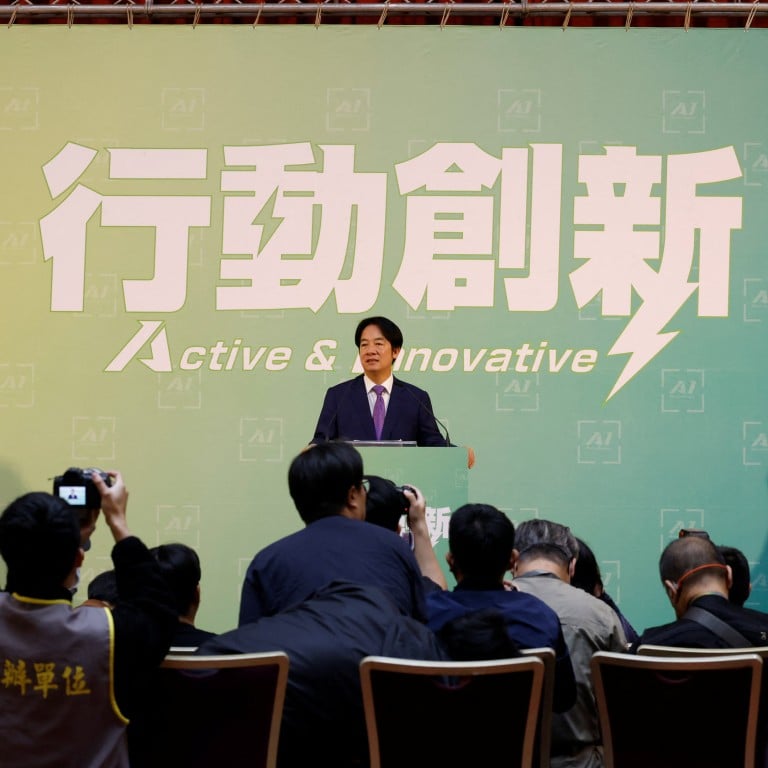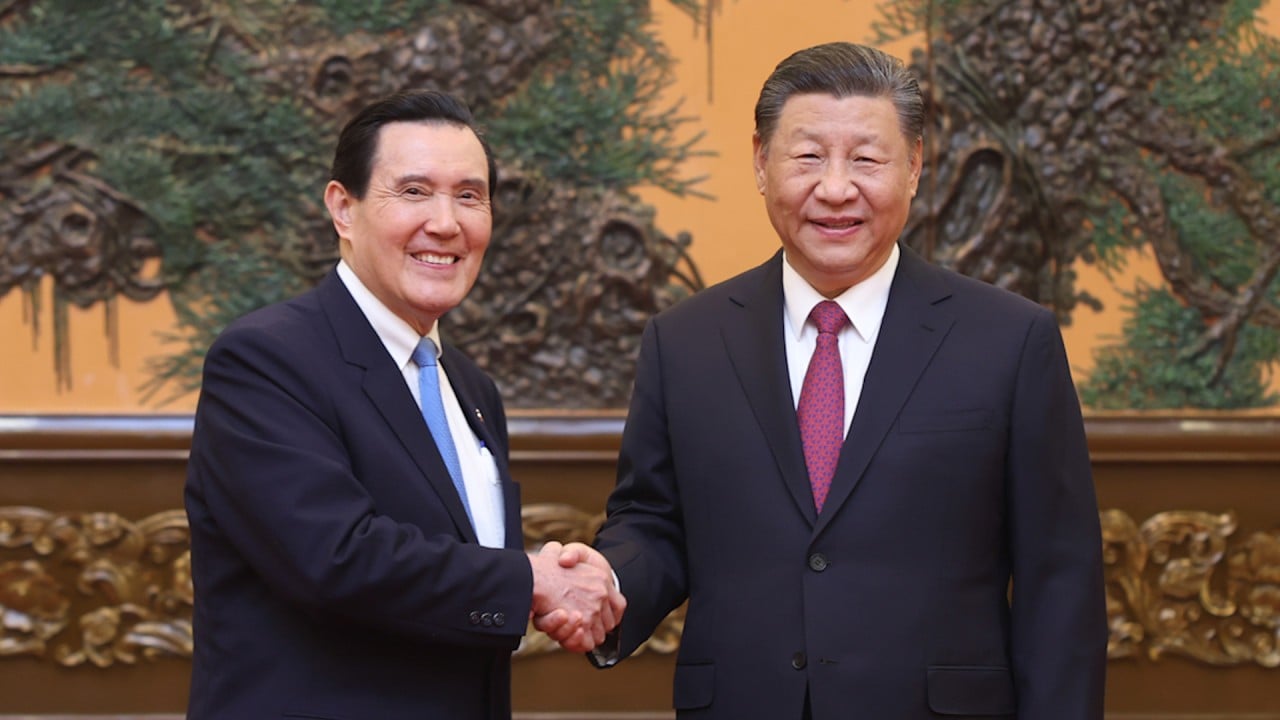
Taiwan’s president-elect calls for ‘healthy dialogues’ with Beijing in party-to-party talks
- Weeks ahead of inauguration, William Lai Ching-te says mainland China should ‘have confidence’ in talking to island’s ‘elected legitimate’ government
- Beijing accuses ruling DPP of ‘deliberately creating cross-strait conflicts and instigating confrontation’
Taiwan’s president-elect William Lai Ching-te has called for party-to-party talks with Beijing just weeks ahead of his inauguration, at a time of souring cross-strait ties.
He told a party meeting on Wednesday that the two sides should understand and respect each other’s positions, and cherish each other’s goodwill. He also mentioned a willingness to engage in exchanges and cooperation with Beijing “on the premise of reciprocity and dignity”.
Taiwan will tear down all remaining statues of Chiang Kai-shek in public spaces
His remarks came amid soaring cross-strait tensions. Beijing has denounced Lai as a “troublemaker” and an “obstinate separatist”, and has tried to downplay the significance of the ruling party’s electoral victory. The DPP won just 40 per cent of the ballot and lost its majority in the legislature.
On Thursday, Lai told a press conference that Beijing should “have confidence” in talking to the DPP government, Taiwanese media reported.
He said he hoped that Beijing would be “willing to face the elected legitimate government entrusted by the people of Taiwan, and this is the right way for cross-strait exchanges”.
Lai added that a lack of exchanges with the elected government “will not be able to earn the trust and support of the people” and that “in the long run, this will not be a good thing for Beijing, nor will it have a positive impact on the cross-strait peace and development.”
US House passes bills to aid Ukraine and Israel, bolster Taiwan, threaten TikTok ban
Beijing cut off official communications with Taipei soon after Tsai came to power in 2016, blaming the island’s government for failing to acknowledge the one-China principle.
However, it has maintained active party-to-party communication with opposition parties friendly to Beijing, especially the KMT, and has hosted multiple heavyweights from the KMT on the mainland.
Aside from stressing friendly exchanges, Lai also criticised Beijing’s move to begin operating two civil aviation routes near the sensitive median line in the Taiwan Strait.
He said the move was made without consultation with Taiwan, and he criticised Beijing for “continued unilateral alteration of the status quo in the Taiwan Strait”.
Lai also called on Beijing to “take more responsibility as a regional power for creating prosperity and happiness for the people” on both sides of the strait.
Wednesday’s meeting also heard a report related to Taiwan’s anti-infiltration law, which was passed in 2019 and intended to combat efforts by Beijing to influence politics and the self-ruled island’s democratic process.
Lai on Wednesday said that while promoting cross-strait exchanges, it is also necessary to “strengthen Taiwan’s resilience to safeguard its sovereignty and democratic freedoms”.
Zhu Fenglian, a spokeswoman for Beijing’s Taiwan Affairs Office, slammed the 2019 legislation as an “evil law” on Wednesday, accusing DPP authorities of using it as a political tool to suppress dissidents and seek its own partisan interests.
As relations with Beijing cool, Israel seeks closer bilateral ties with Taiwan
She warned that the DPP authorities are “deliberately creating cross-strait conflicts and instigating confrontation” and “will end up hurting their own interests”.
Beijing sees Taiwan as part of its territory to be united with the mainland, by force if necessary.

.JPG?itok=zUDwoZRB&v=1701240446)
